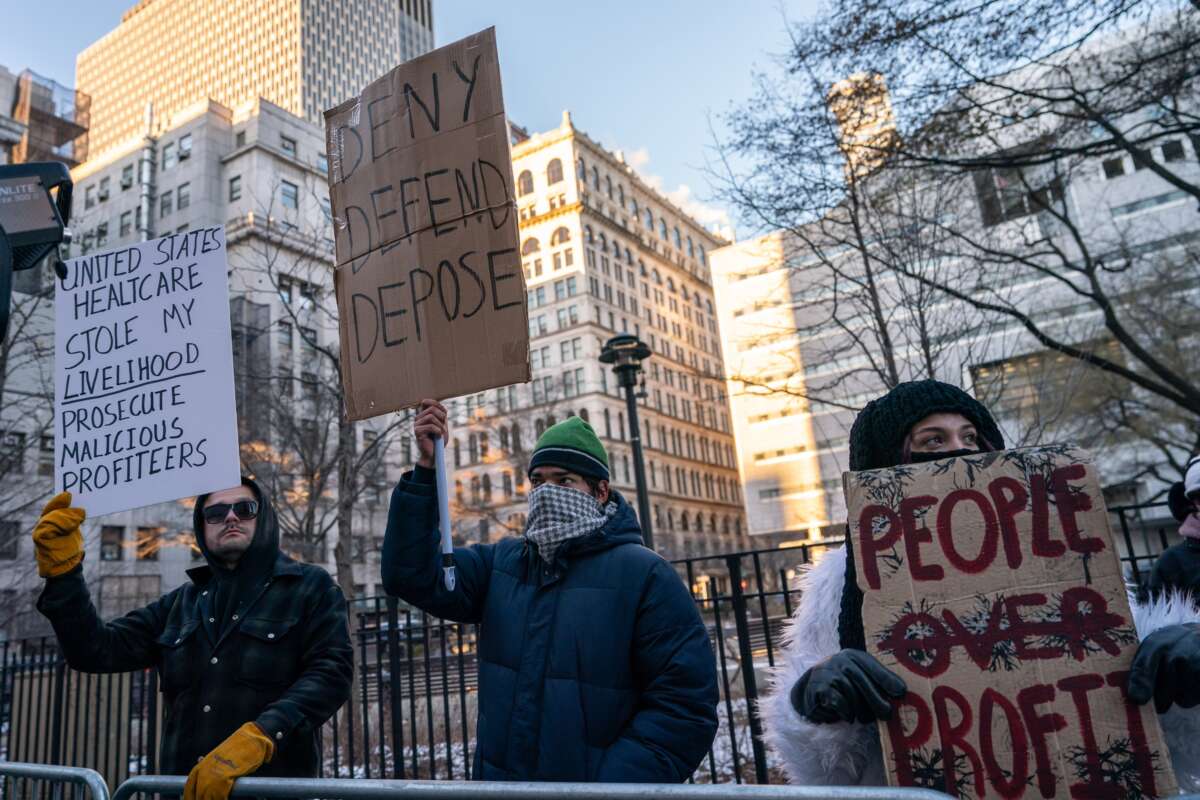This fall, shortly after the election, the House passed a dangerous piece of legislation that many are calling the “nonprofit killer” bill.
The bill has an incongruous title: the “Stop Terror-Financing and Tax Penalties on American Hostages Act.”
Among other things, it would give the Treasury Department the authority to unilaterally accuse nonprofit organizations of supporting “terrorism” — and revoke their nonprofit status. Critics like the ACLU say it’s a blank check for presidents to shut down organizations that criticize them.
When the bill was introduced in the spring, it was largely viewed as an effort to silence pro-Palestinian activism. At the time, dozens of House Democrats supported it alongside most Republicans. But after Donald Trump’s White House win, amid fears that the incoming president would use it as a tool to bludgeon his perceived enemies, it passed with significantly less Democratic support.
But really, it should never have been introduced or passed to begin with, no matter the political winds. The bill is considered unlikely to pass the Senate this year, but could be reintroduced next year and signed by President Trump.
This would have a dangerous chilling effect on speech.
Consider the Florida woman Briana Boston, who recently said “Delay, deny, depose. You people are next,” during a phone call with a health insurance representative after her coverage was denied. It was a reference to what the killer of UnitedHealthcare CEO Brian Thompson wrote on bullet casings in a now-infamous targeted assassination.
Boston has no history of violence, nor does she own firearms. But she wasn’t only arrested — she was charged with threatening to commit an act of terrorism.
What she was really guilty of was expressing vitriol against corporate CEOs for an inhumane business model. It’s not hard to imagine such a scenario applied to nonprofits in the coming years either.
Nonprofits are effectively the voice of civil society in the United States. And even without HR 9495, they already have severe limits on their speech. In order to keep their nonprofit status, groups have to follow strict guidelines published by the Internal Revenue Service when speaking about elections.
As a journalist who works in the nonprofit world, I’ve seen the resulting self-censorship first hand. Many journalists and nonprofit leaders feared compromising their institutions if they warned about Donald Trump’s fascism, or even criticized Joe Biden over Gaza, ahead of the 2024 election.
Meanwhile, for-profit industries have enjoyed continuous and ever-growing impunity to advocate for whatever they want, no matter how destructive.
For example, the health insurance and fossil fuel industries play with people’s lives by denying coverage and spewing carbon, respectively, but have been given the right to spend enormous amounts of their ill-gotten gains in campaign contributions, putting an outsize thumb on the democratic scale.
Thanks to the Supreme Court’s Citizens United ruling, they have greater means to make anonymous donations to Political Action Committees to lobby government and help elect politicians.
The Supreme Court has long considered corporations to be, in a legal sense, people. In contrast to such abstract entities, we humans can be jailed, silenced, or even killed by corporate-controlled systems — and the nonprofits representing our interests can be officially sanctioned for “political speech.”
Today, not only do corporations have greater means to speak more freely than the rest of us do, they are increasingly grabbing political power to cement their stranglehold.
Trump’s incoming cabinet will likely be filled with billionaires. And his proposed Treasury Secretary pick — who would ostensibly oversee the department making determinations under HR 9495 — is a longtime hedge fund investment manager named Scott Bessent. Trump has also openly promised to bend regulations for billionaire investors.
Seen within this context, HR 9495 is not only a danger to civil society’s right to speech — it is a serious escalation in favor of corporations.
Media that fights fascism
Truthout is funded almost entirely by readers — that’s why we can speak truth to power and cut against the mainstream narrative. But independent journalists at Truthout face mounting political repression under Trump.
We rely on your support to survive McCarthyist censorship. Please make a tax-deductible one-time or monthly donation.
